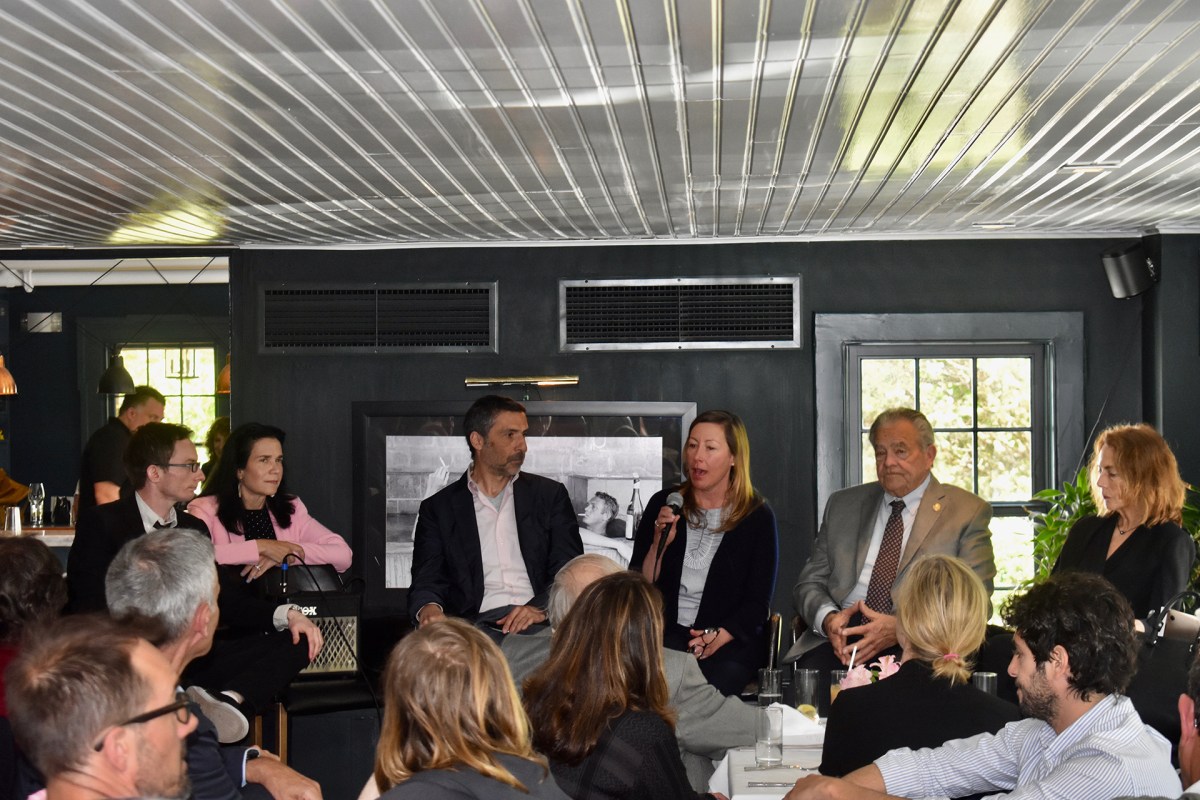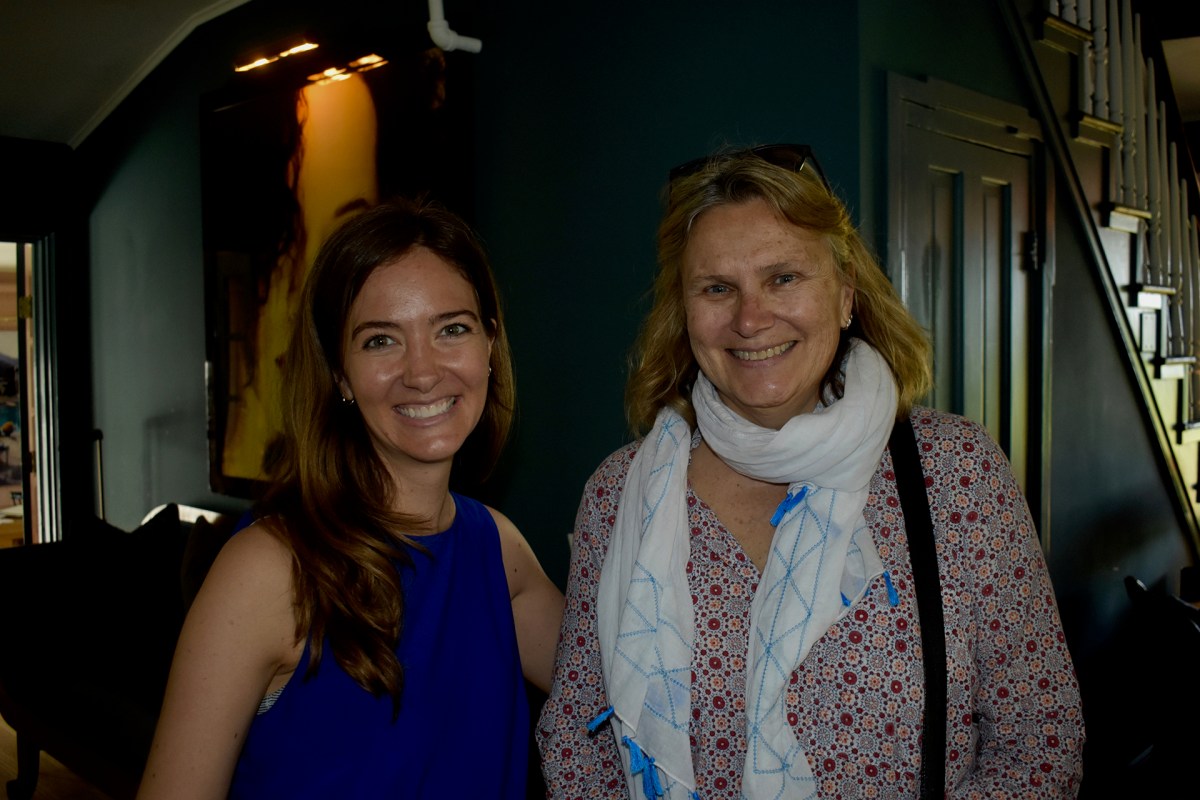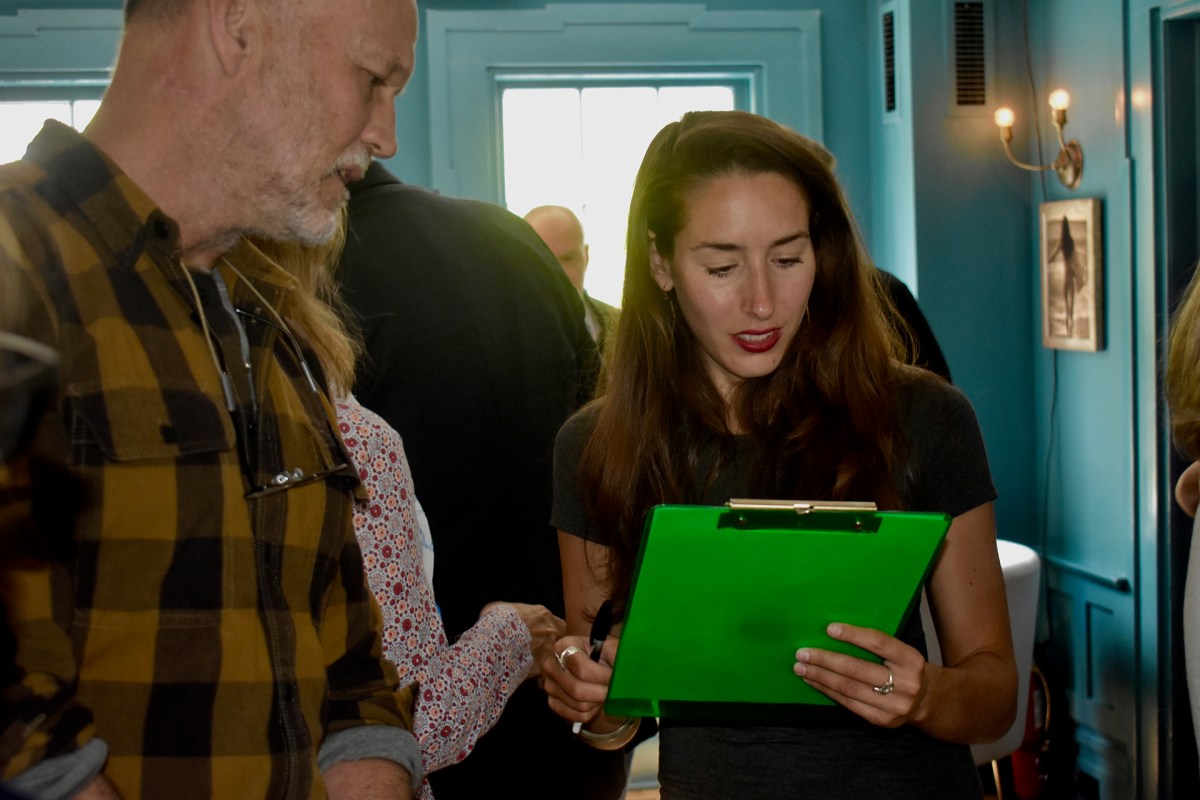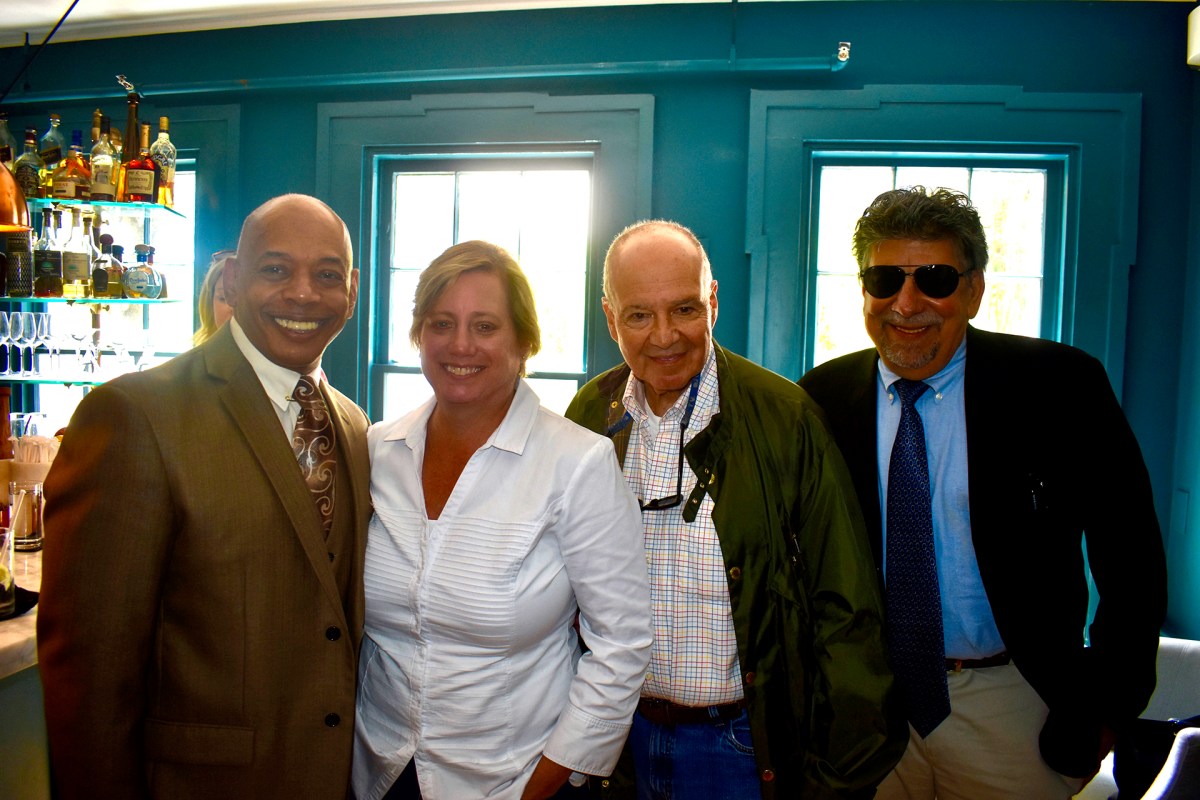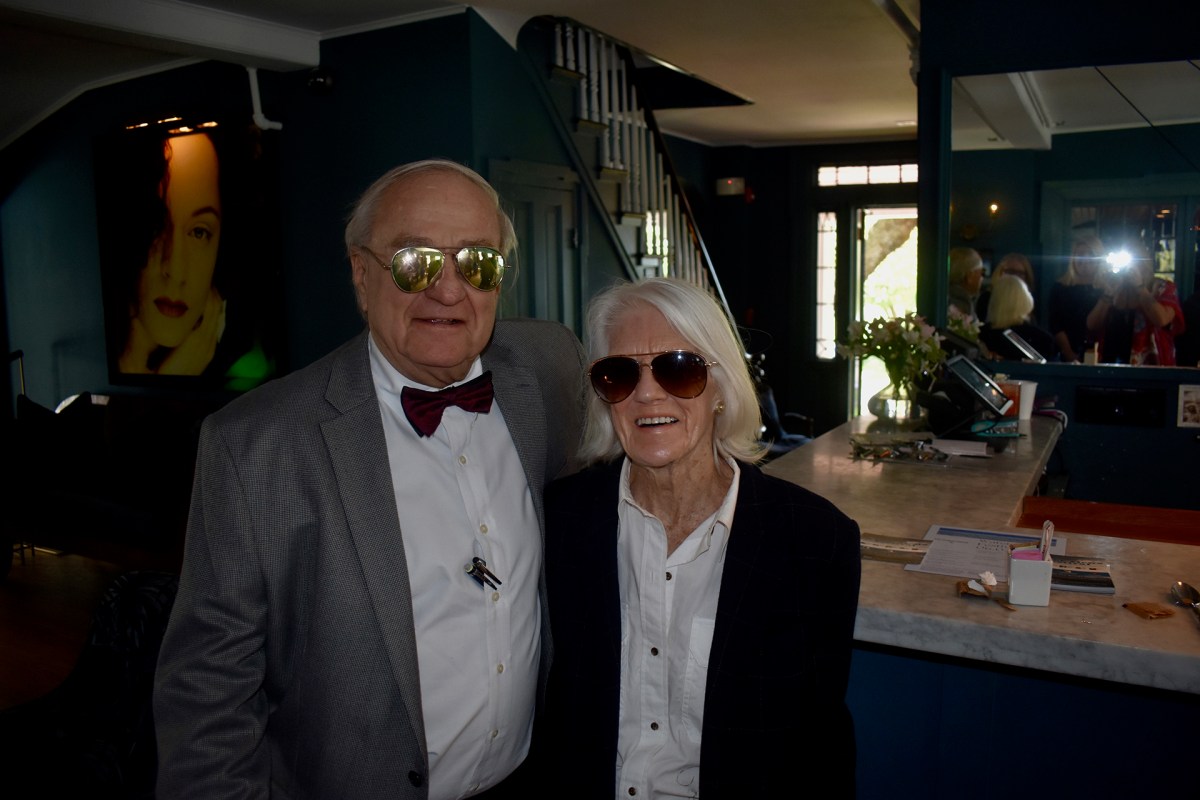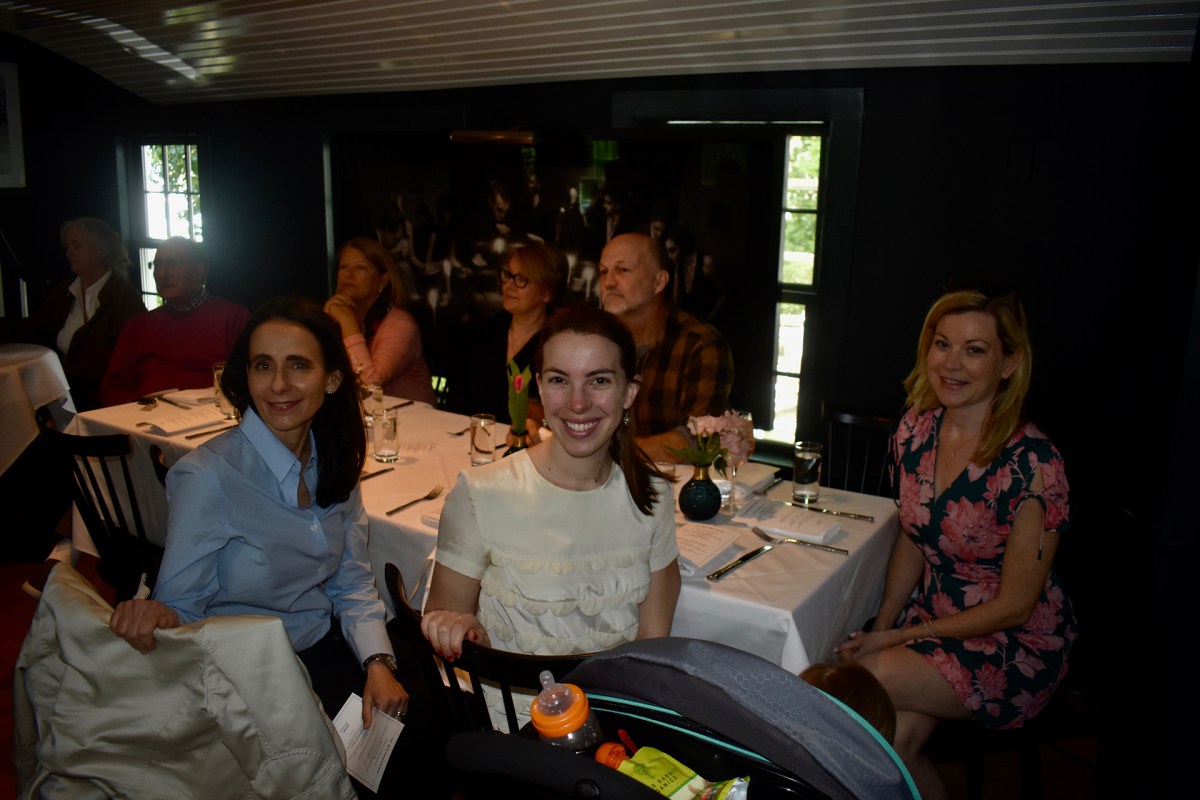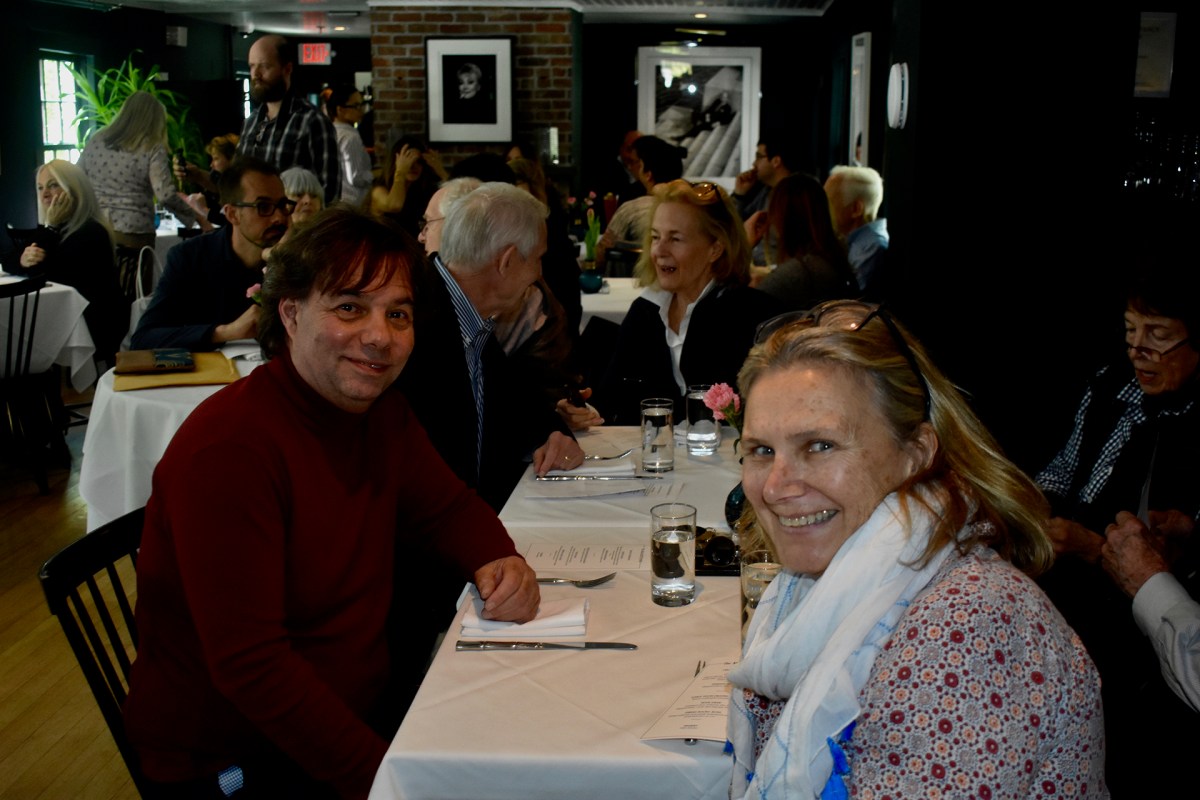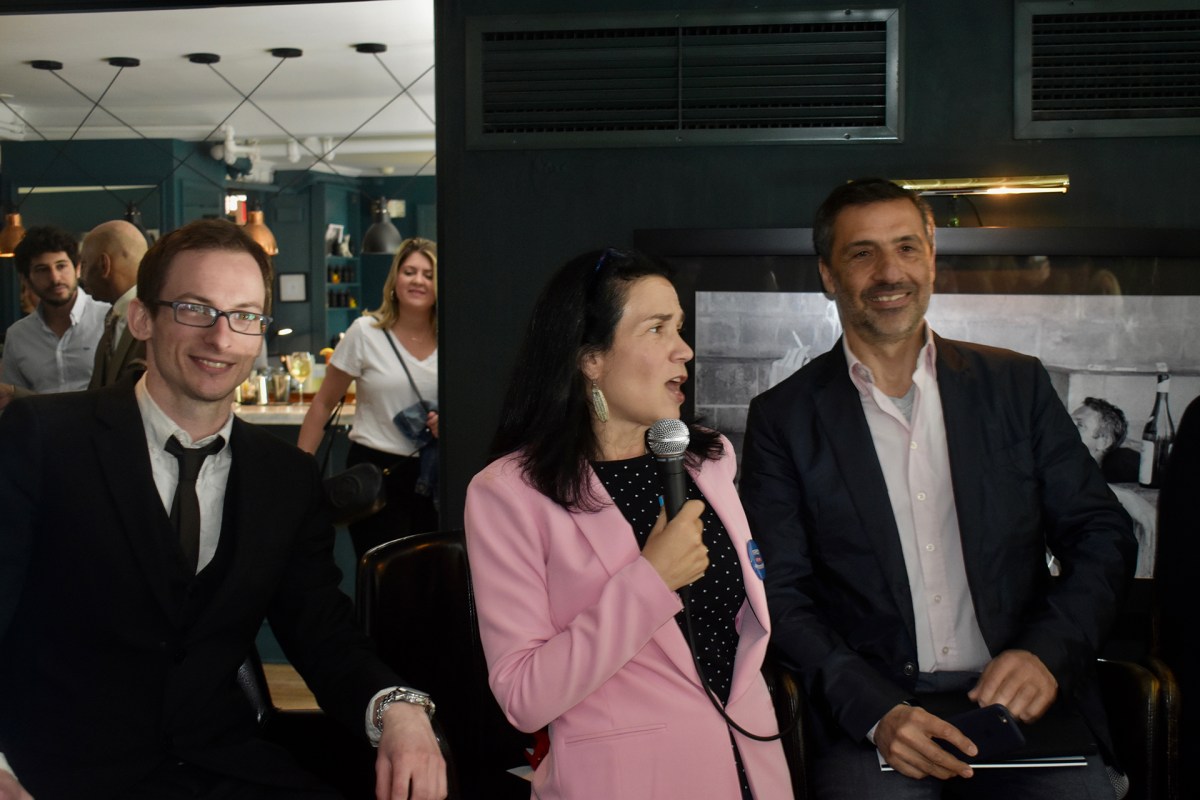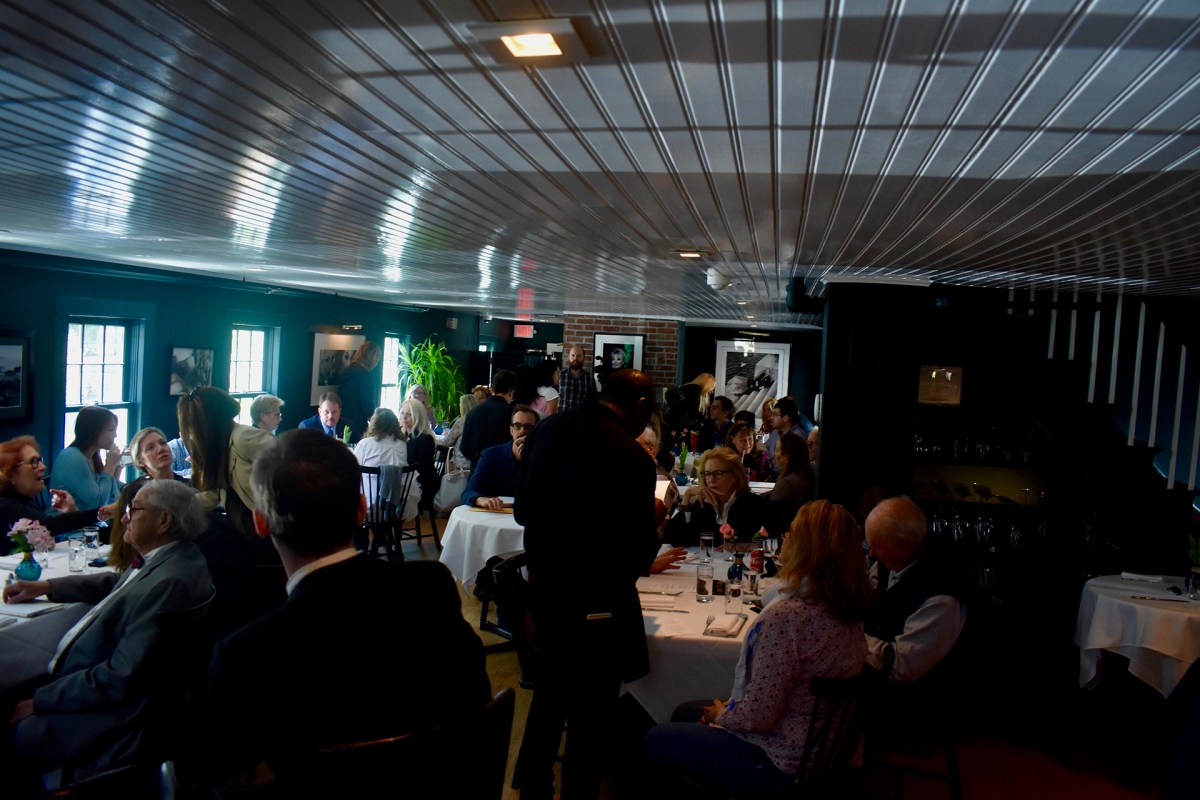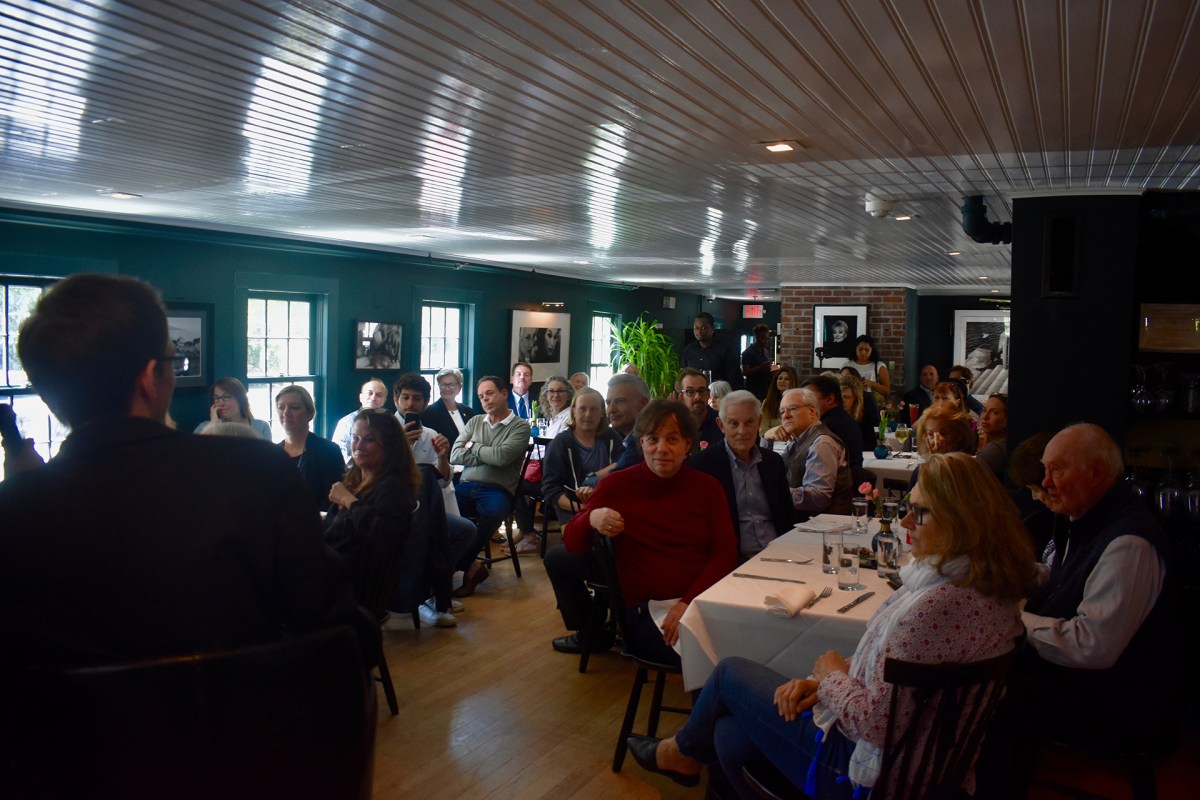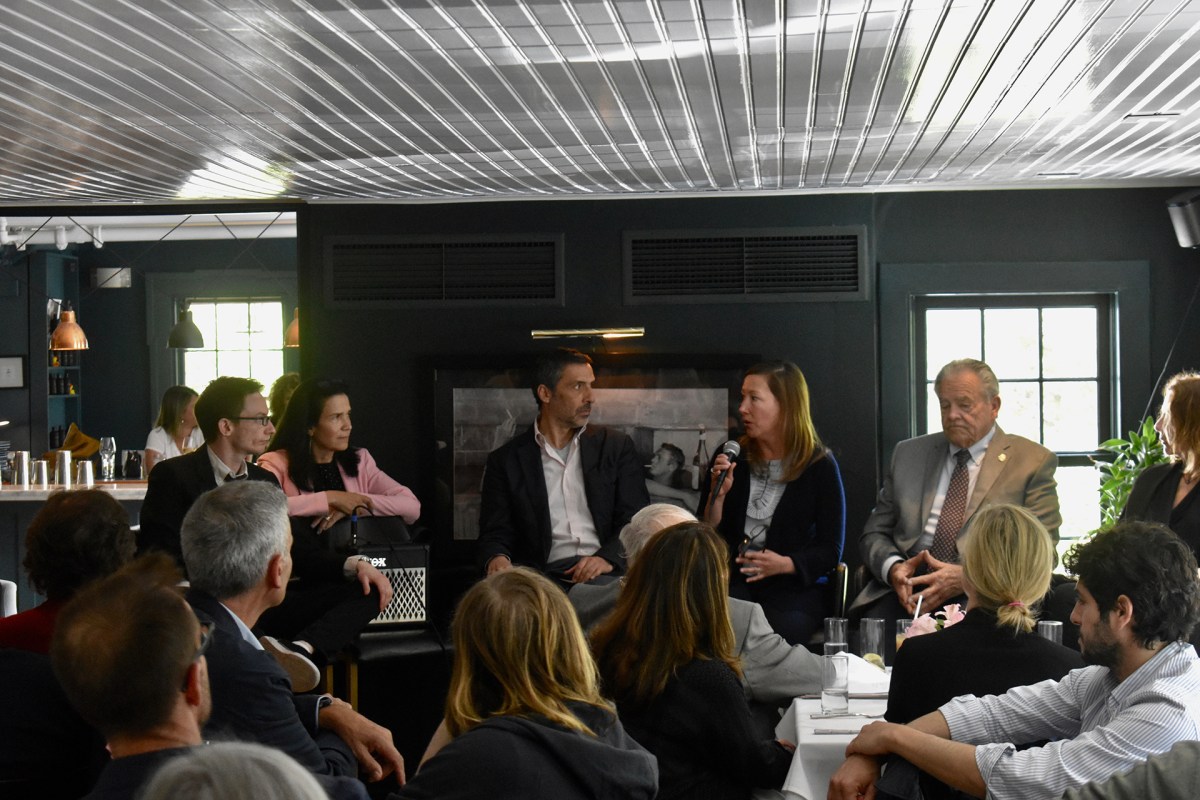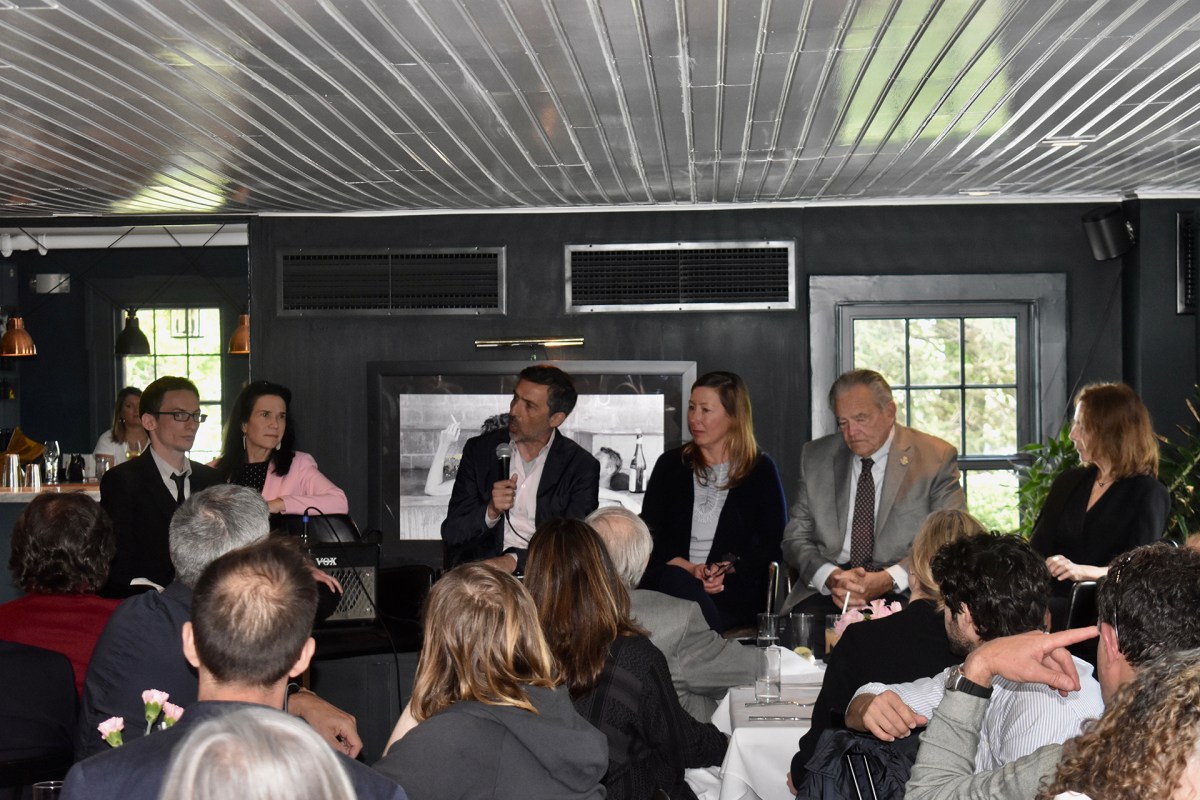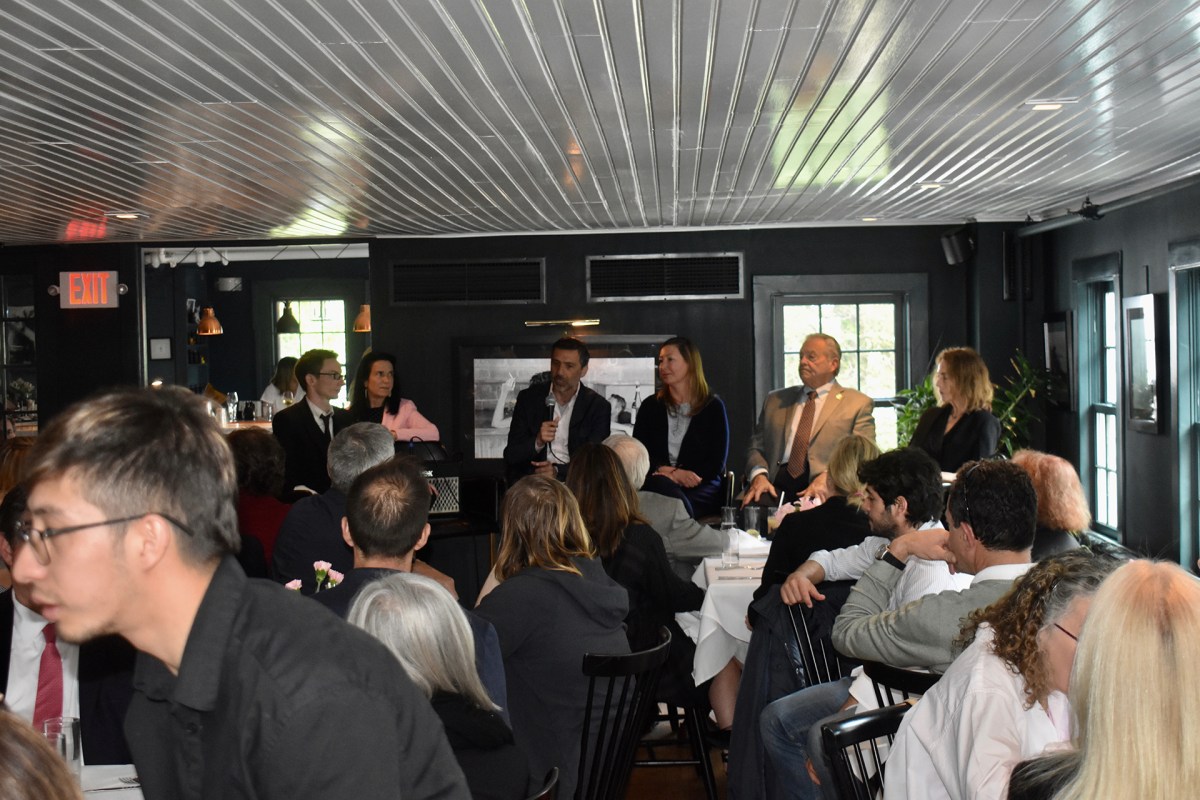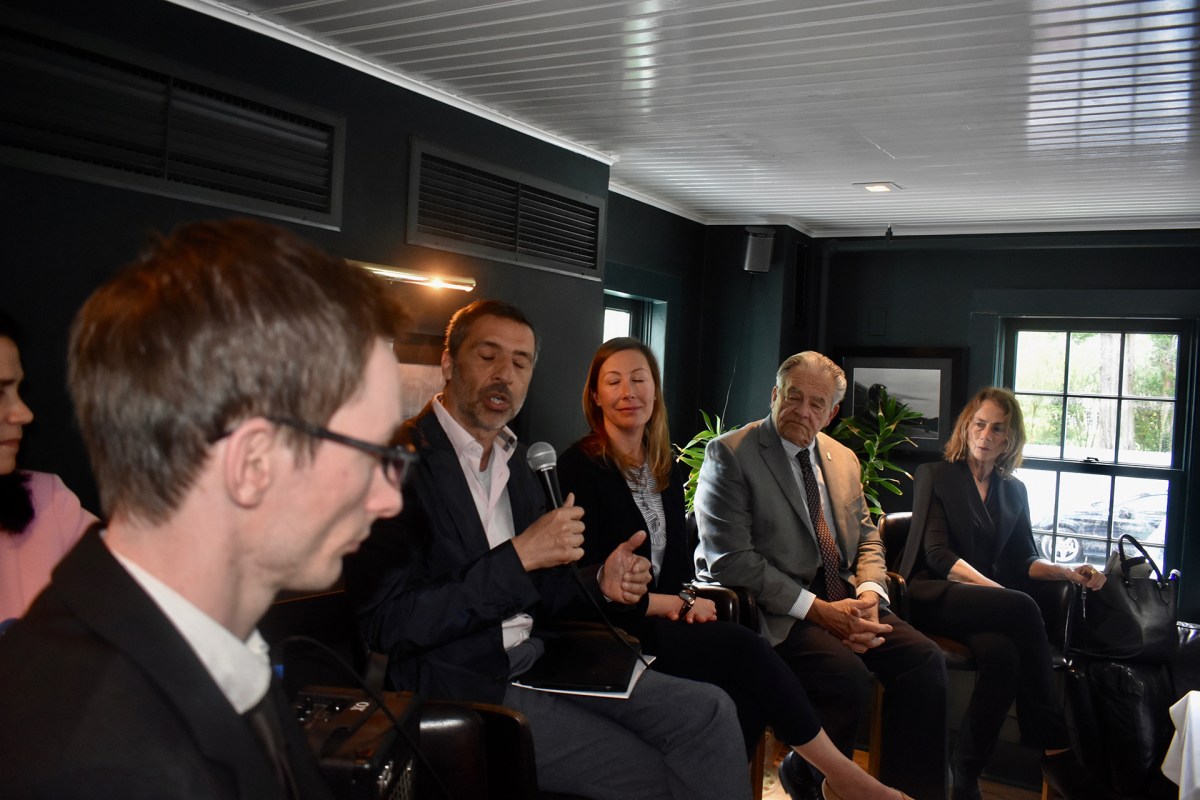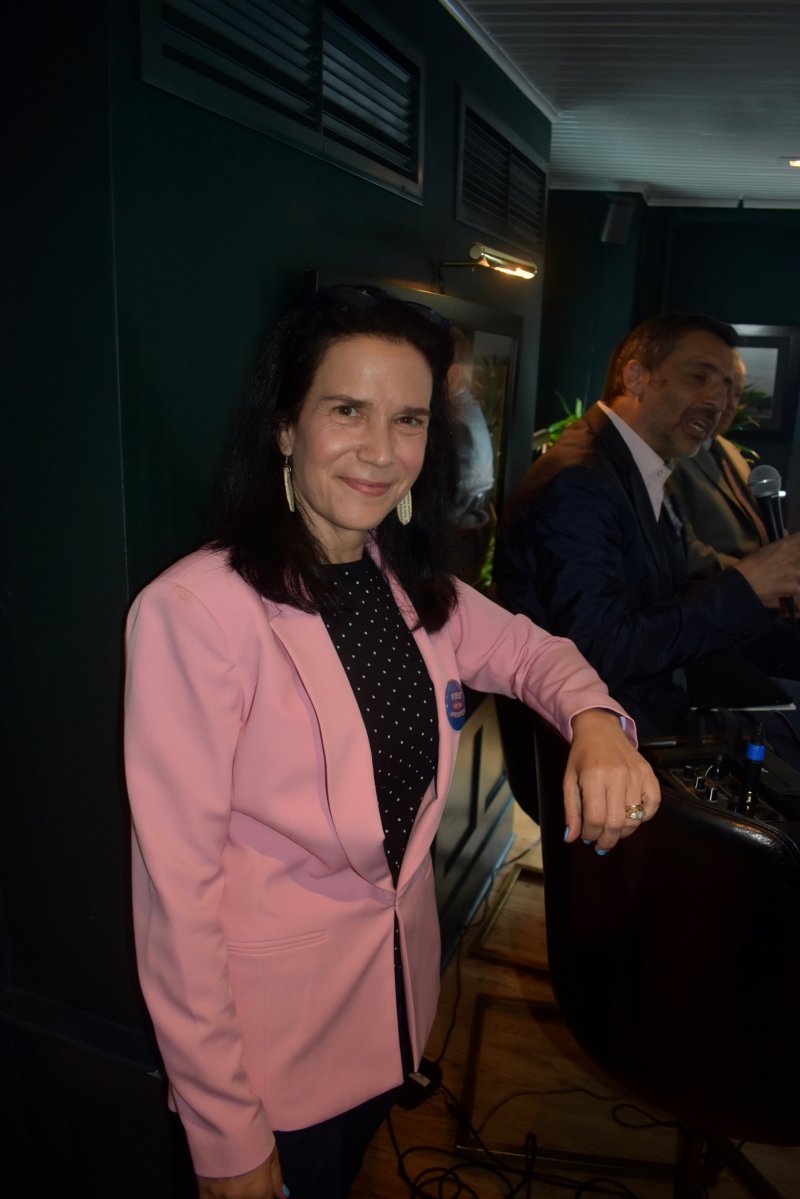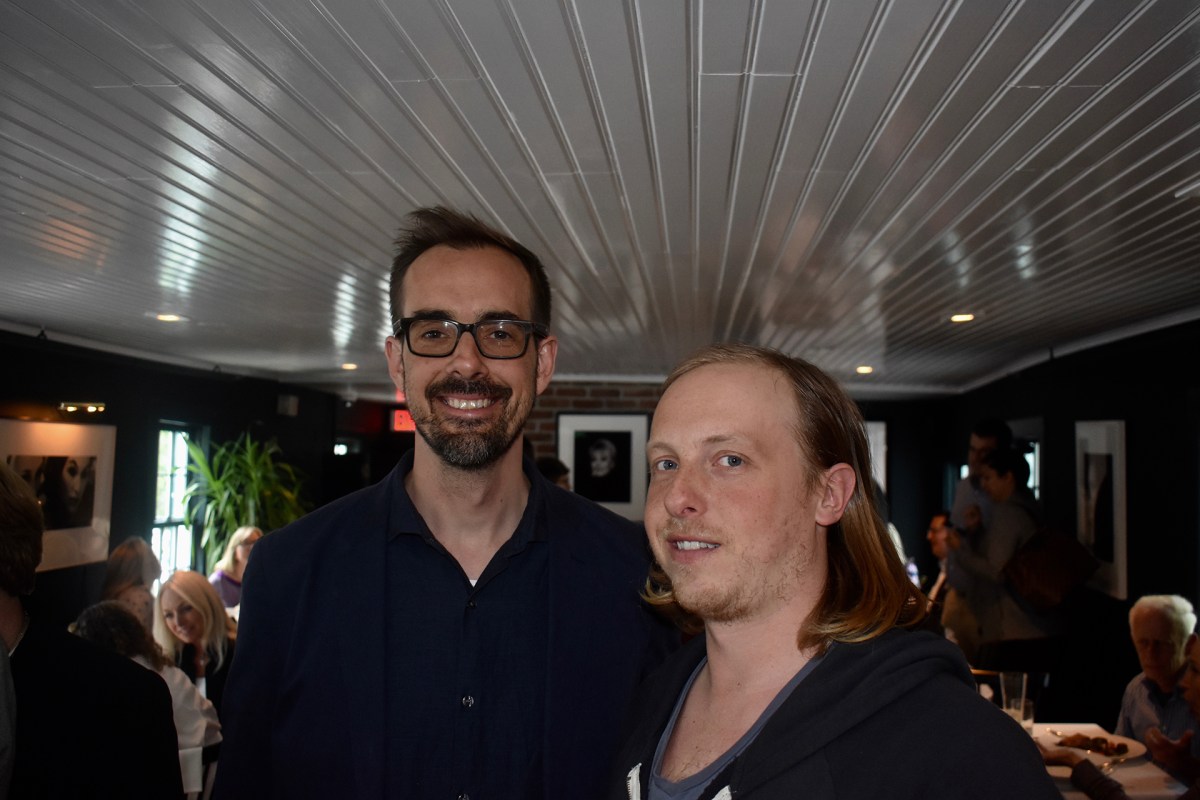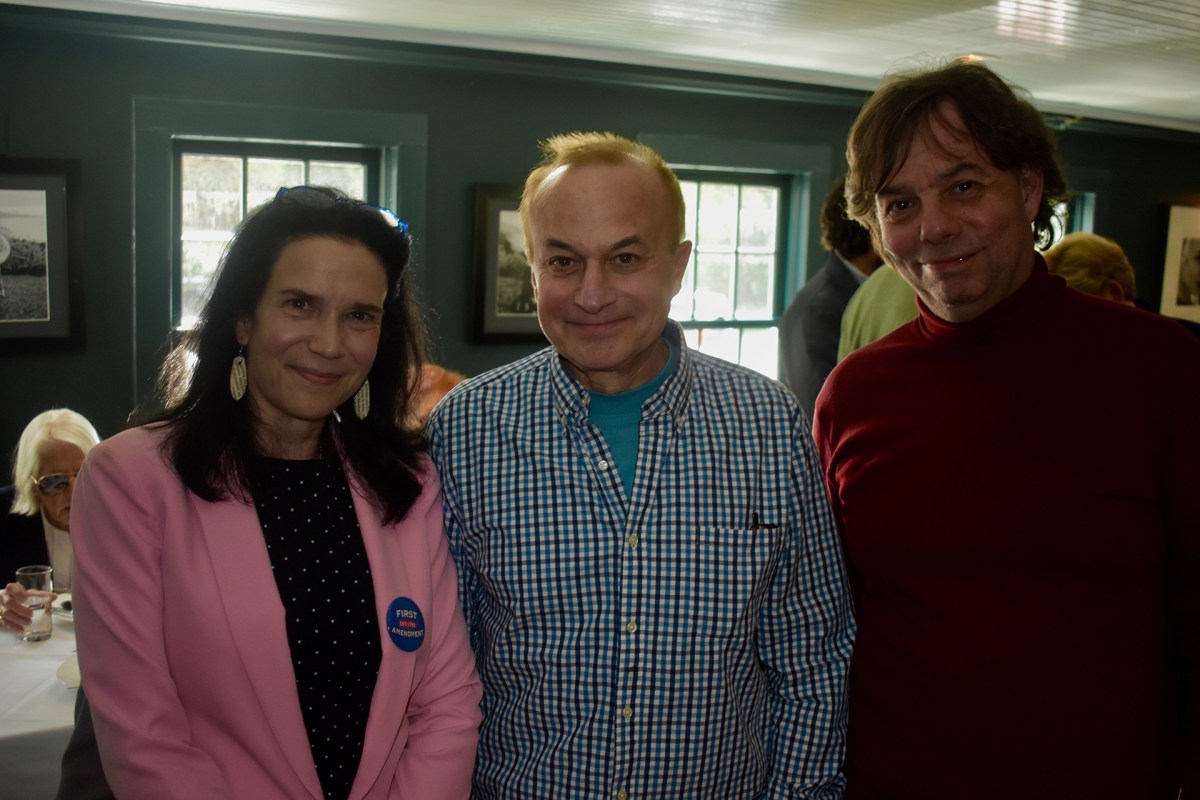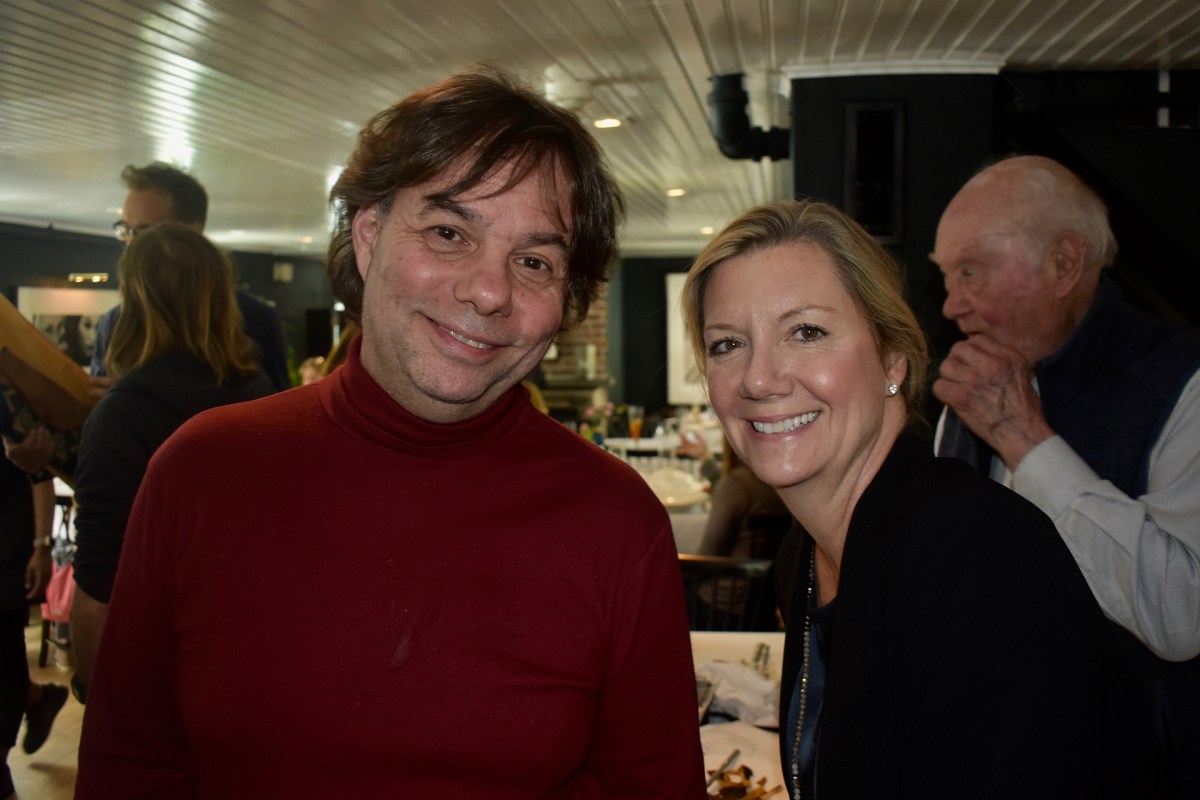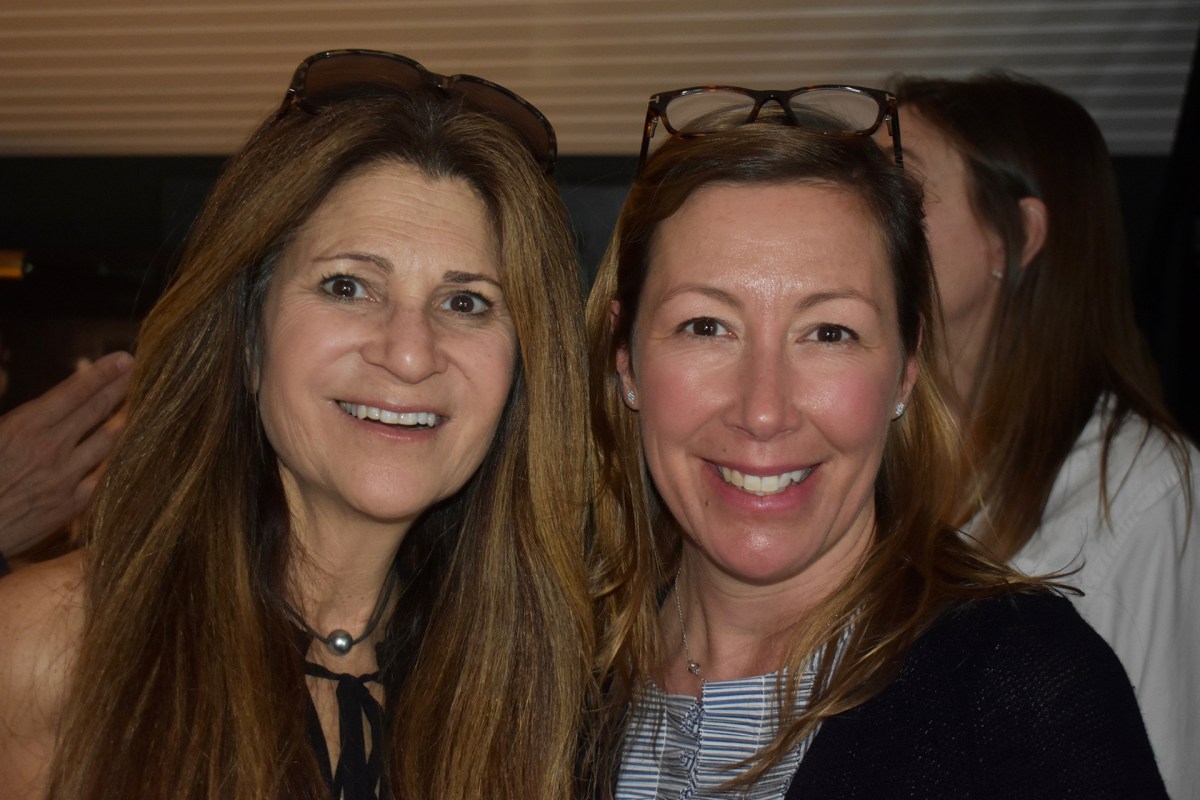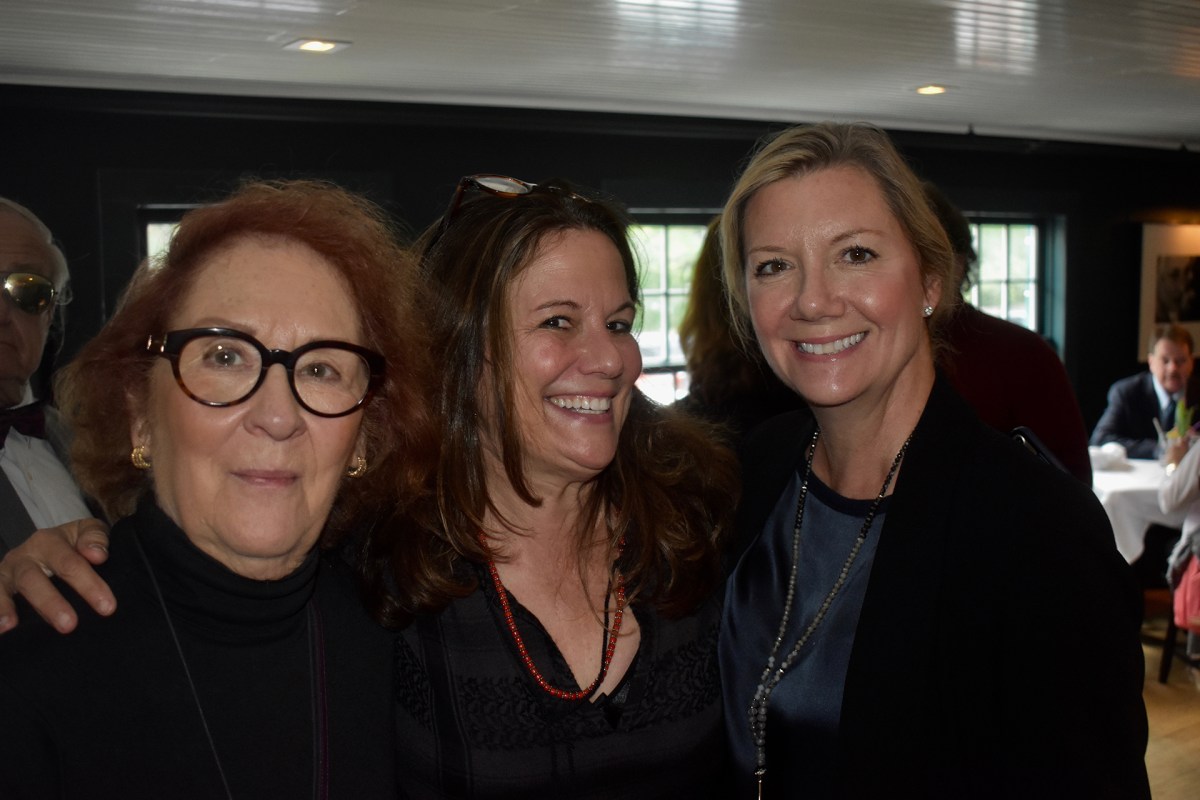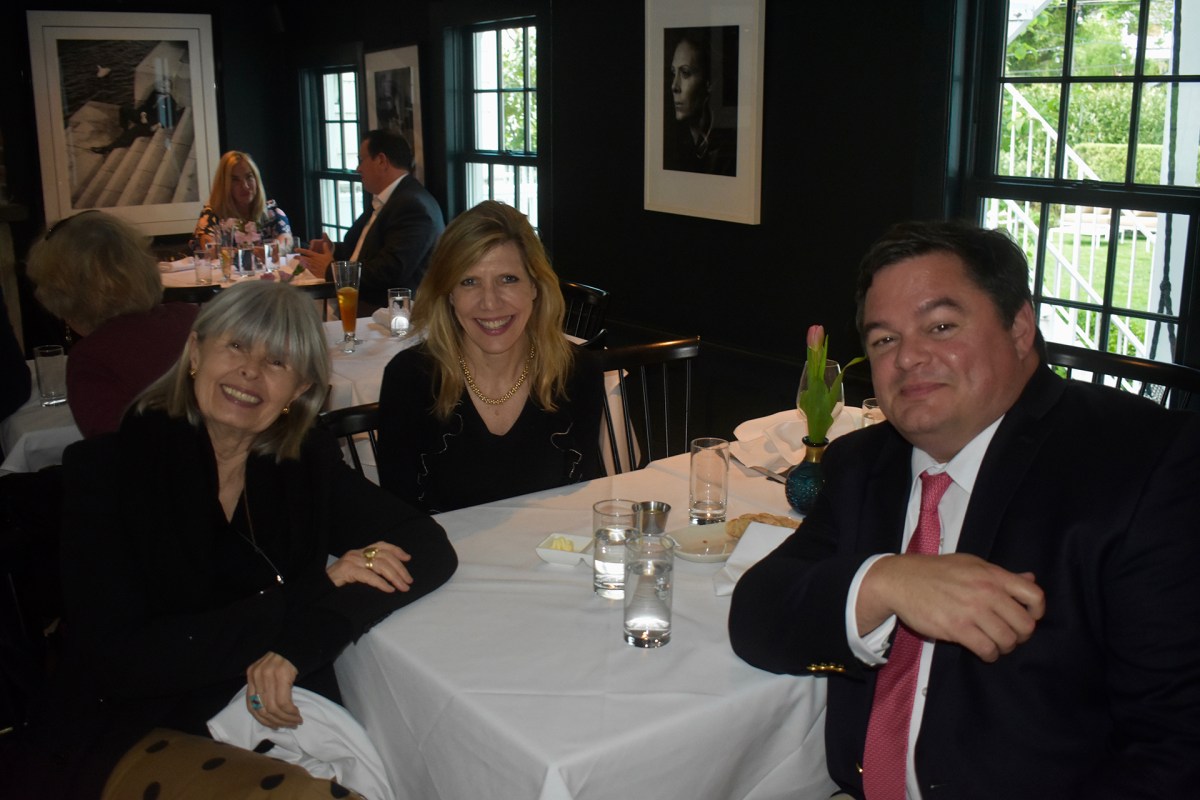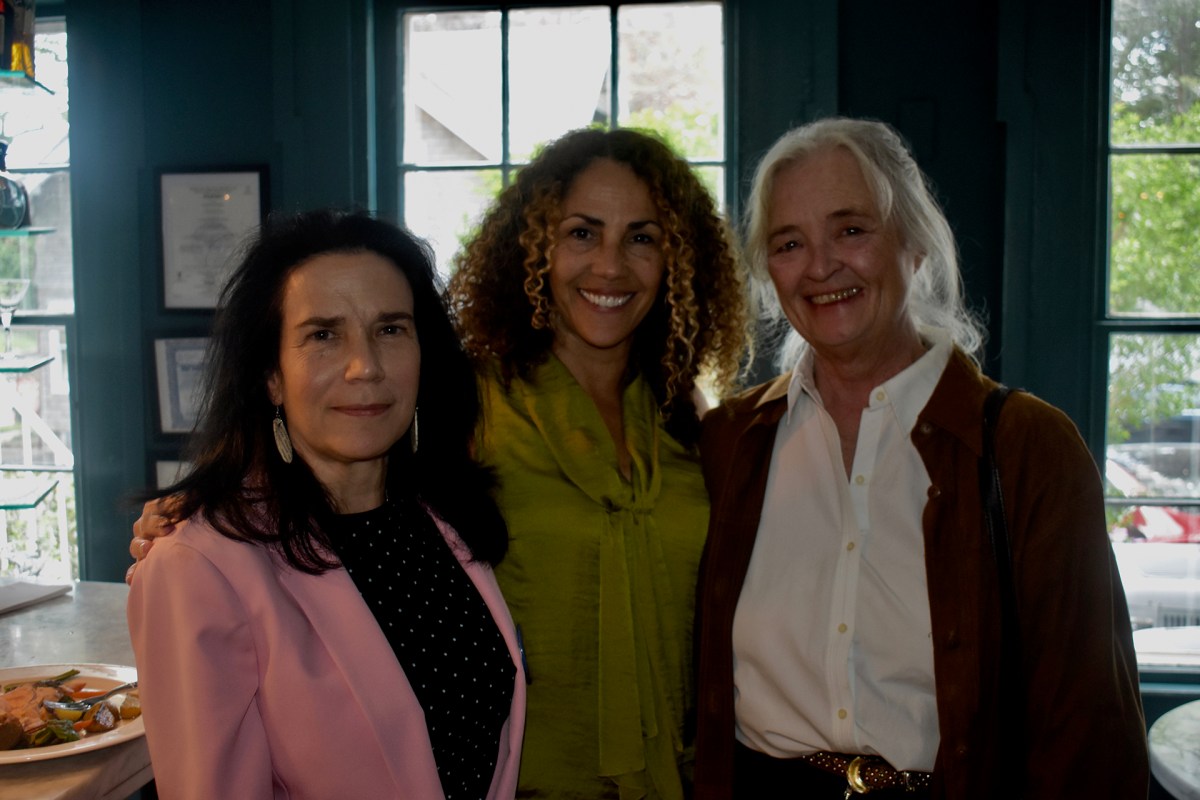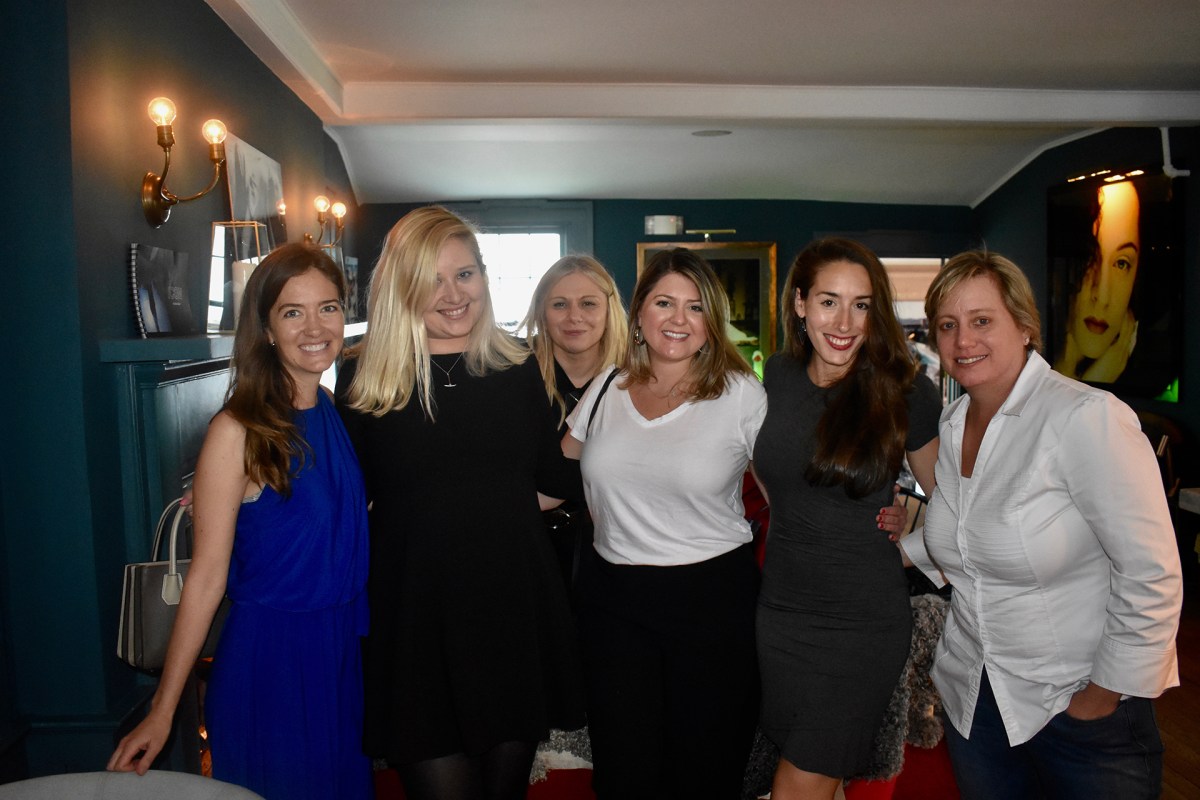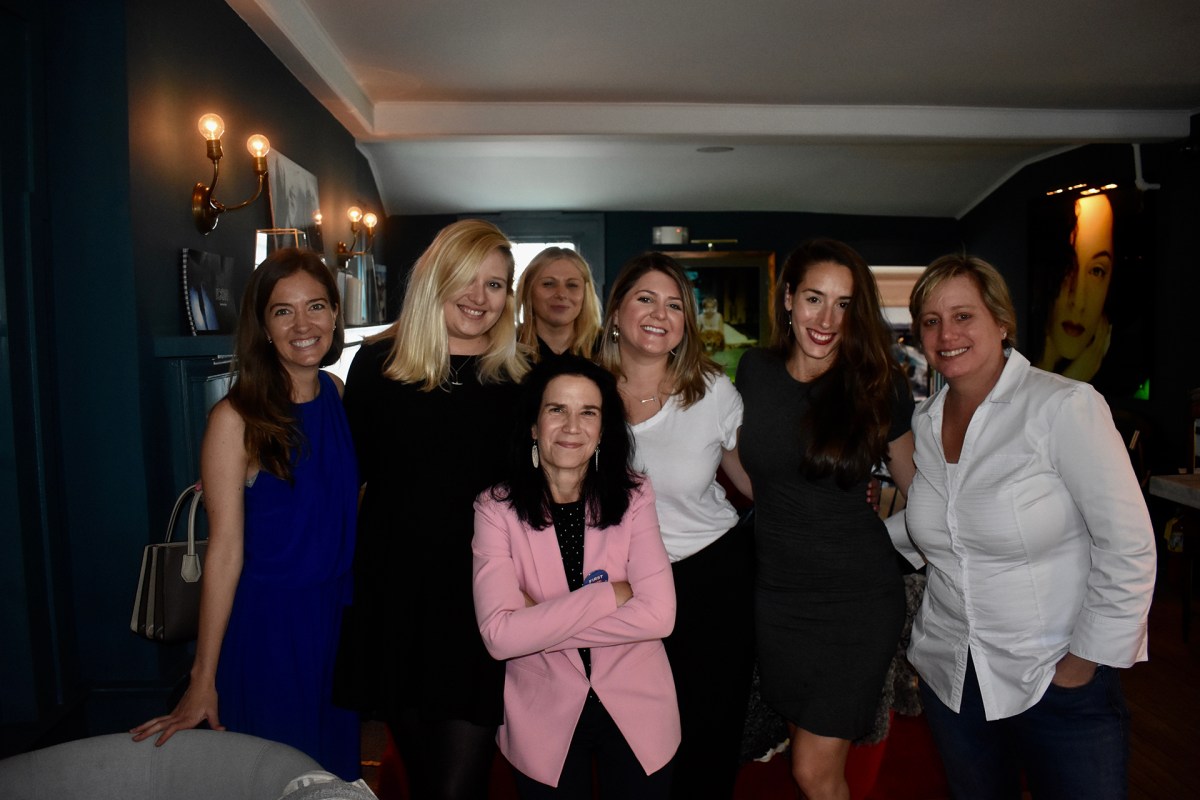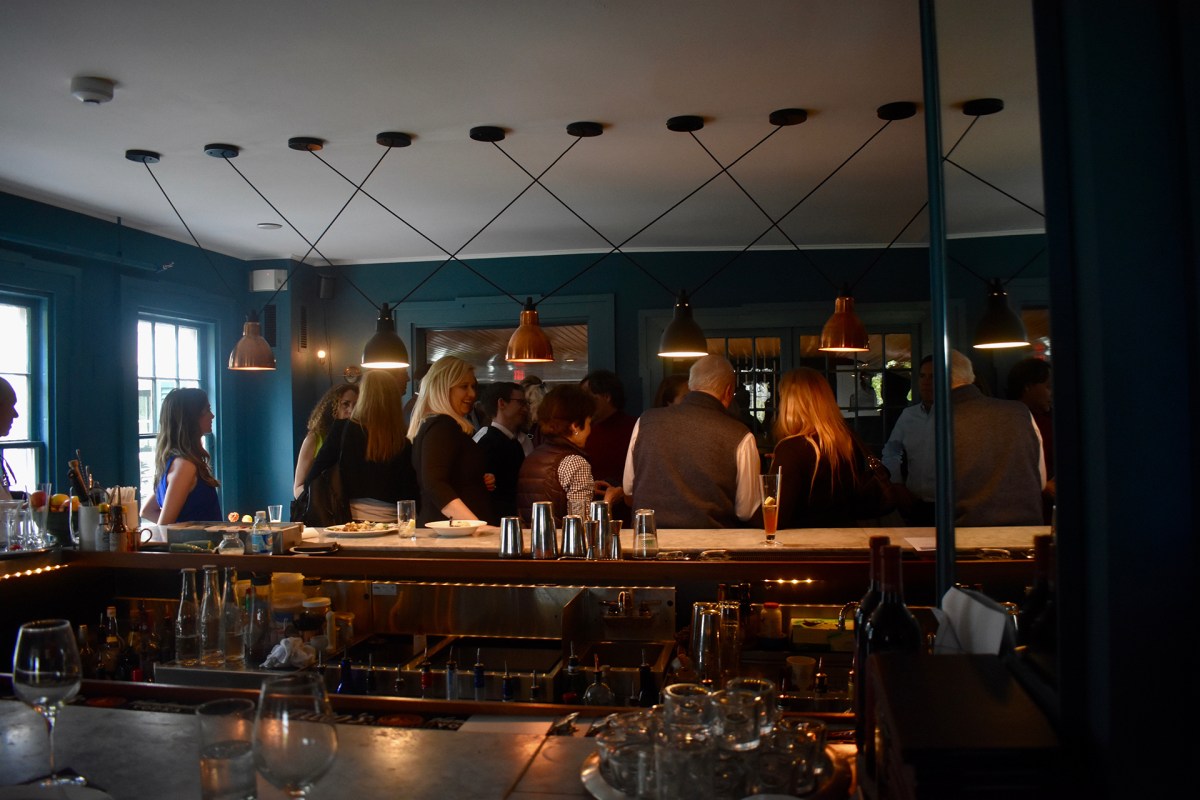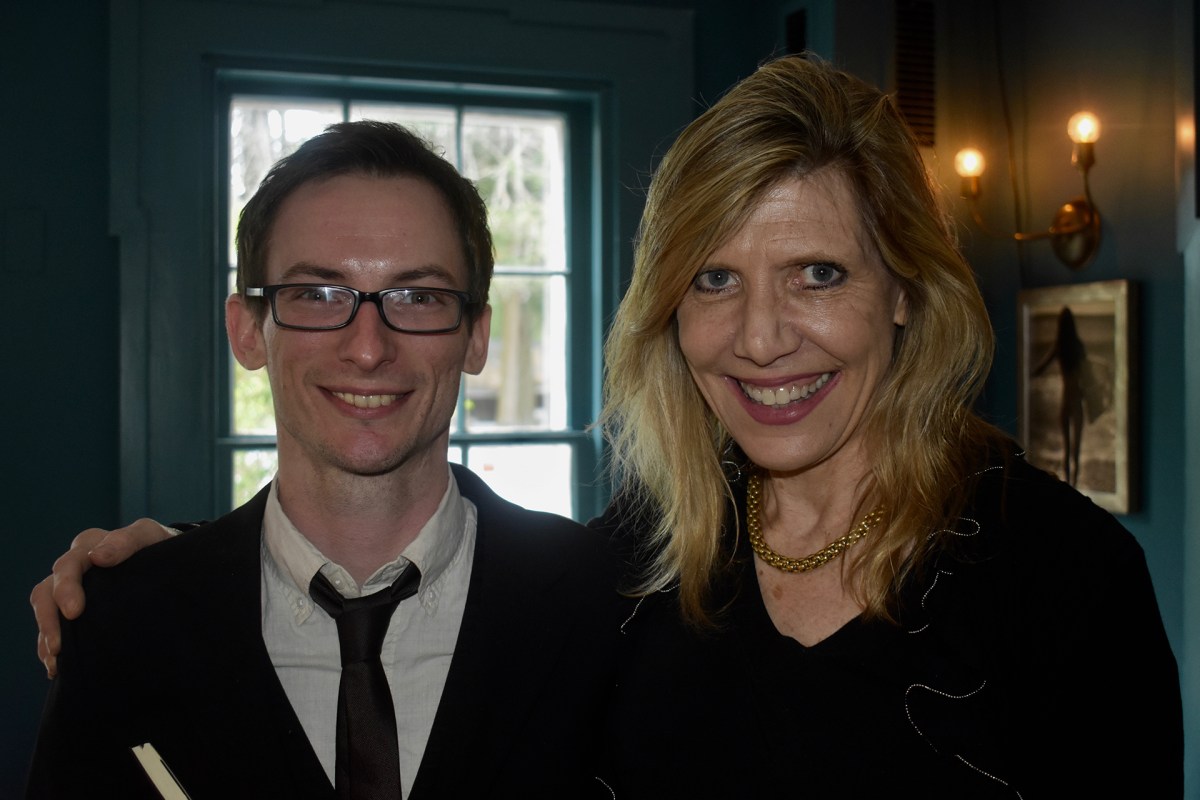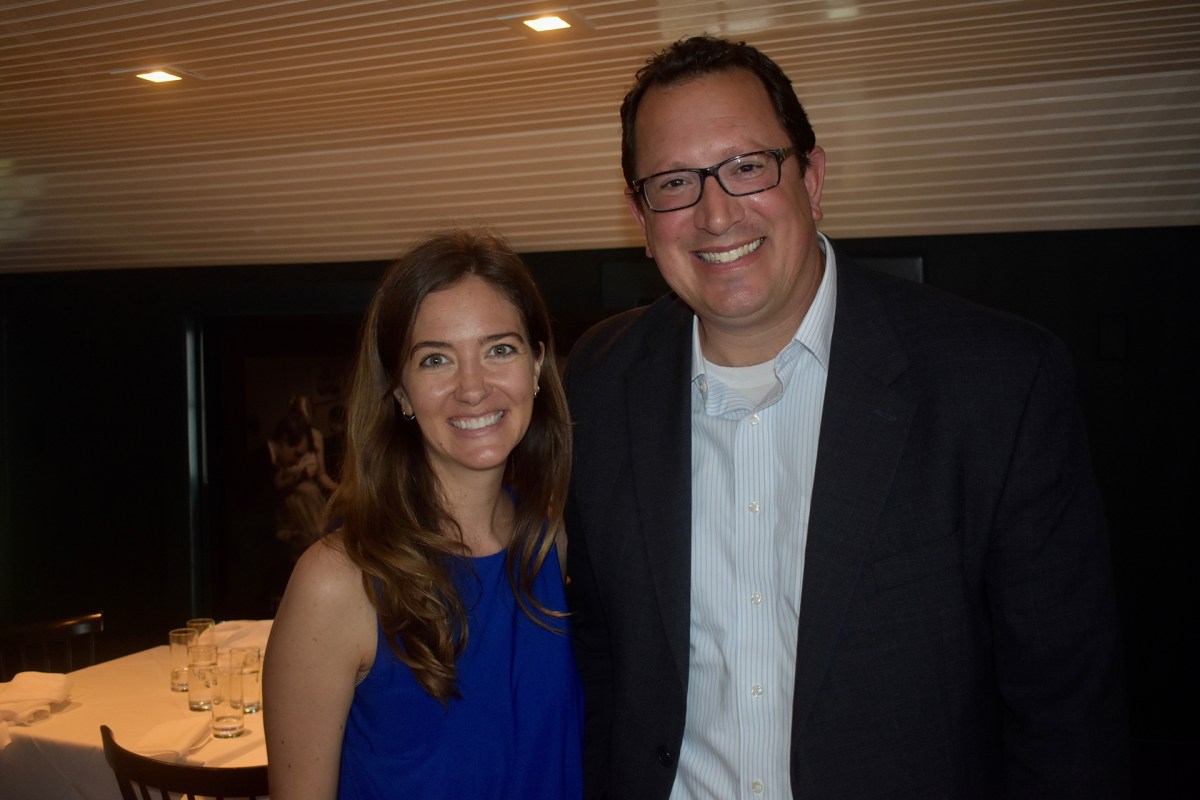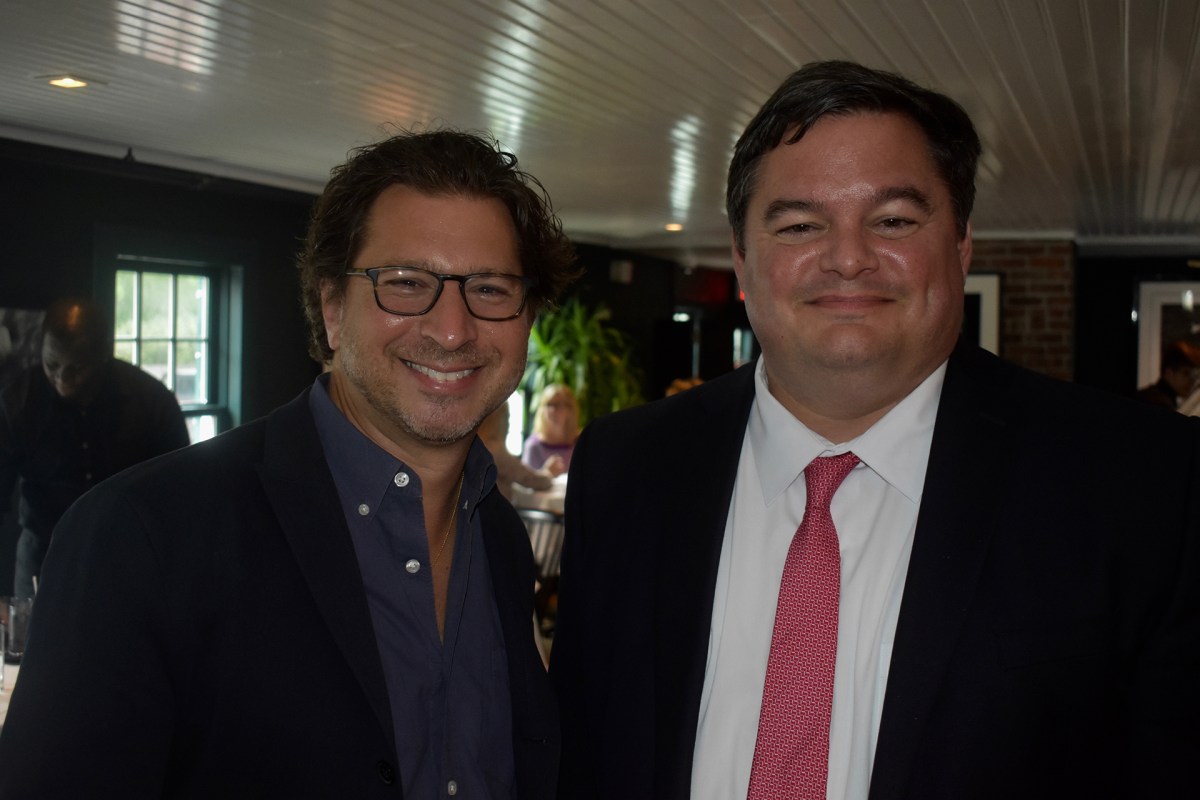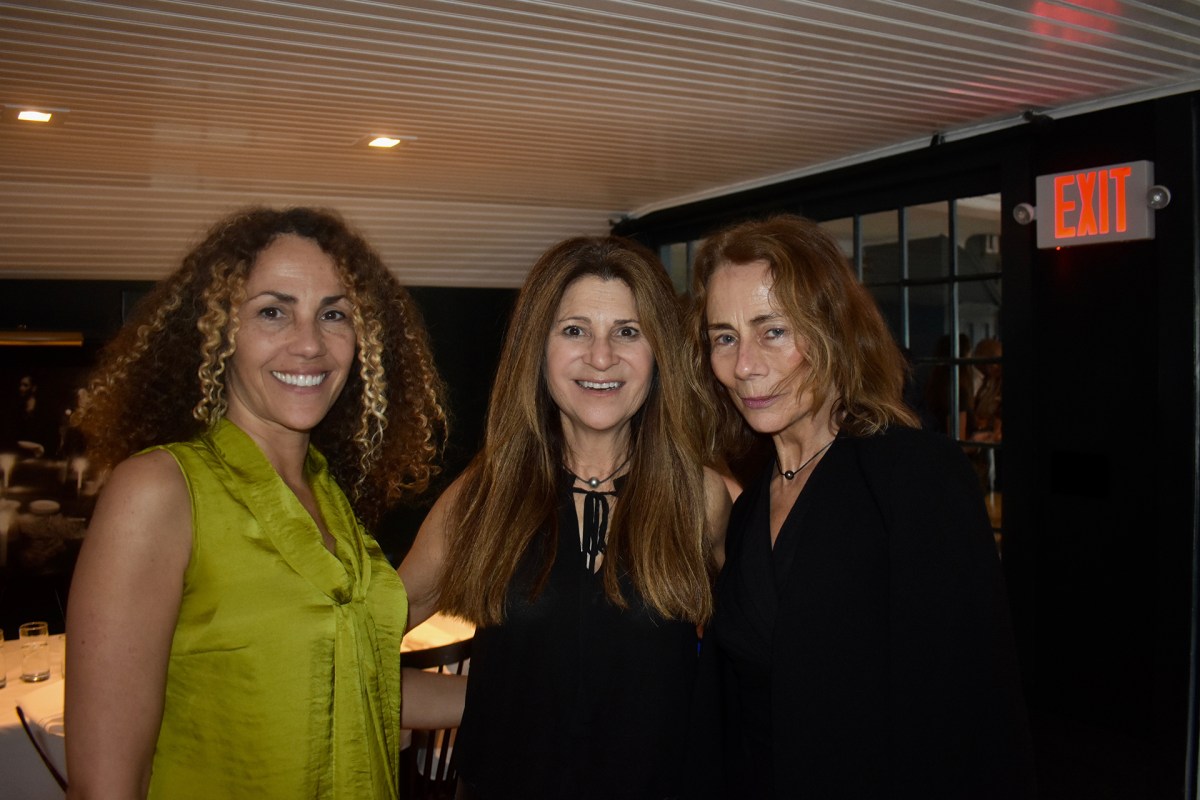Taking The Village’s Pulse
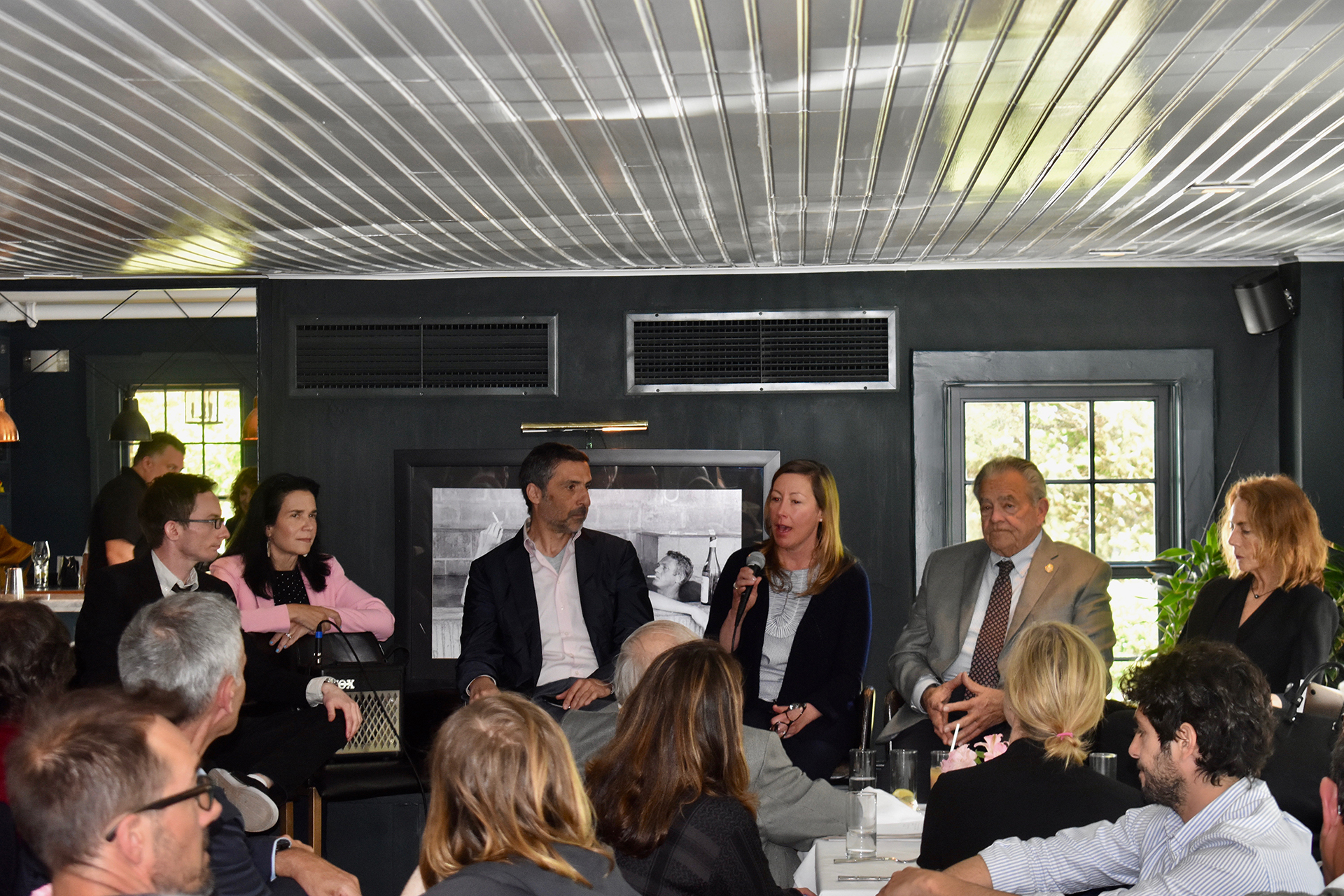
One point emerged above all others at a panel discussion held on May 16 about East Hampton Village: People feel “passionately” about it.
Barbara Layton, the proprietor of Babette’s and one of the panelists, said it all: “It’s about finding the soul we once had to make this a sustainable community.”
The luncheon panel, “The Future of East Hampton: Village Vitality,” was the first in the Independent Thinking series, sponsored by the law firm the Adam Miller Group and Advantage Title and presented by this newspaper. The sold-out event was held at The Maidstone Hotel in East Hampton Village.
The ground rules were set at the beginning: this was to be a civil discussion, not a chance for attacks and grievances. “This is not a town board meeting,” said moderator Bridget LeRoy, The Independent’s managing editor. “Everyone in this room is here because they love where we live. Let’s keep this solution oriented.”
A main concern was the lack of vibrant village nightlife; parking, affordable commercial space, and restrictive zoning regulations were also high on the list.
Jesse Bartel, the manager of BookHampton and the youngest person on the panel, was asked what can be done to revitalize the village’s nightlife. “There is very little open,” he noted. “The sidewalks are rolling up.”
“Each year it gets more difficult staying alive,” Layton said about the seasonal nature of businesses in the village. “People have gone upstate to the Hudson Valley. We want to bring those people back.”
“We’d like a little more hustle-bustle,” said Village Board Trustee Rosemary Brown, who was elected last year. She said the board is working on a number of revitalization plans including revamping the existing parking situation and looking at addressing the issue of sewage so the village could have more “wet” spaces, such as cafes and restaurants.
In fact, the village is planning on taking action on a number of fronts. Mayor Paul Rickenbach, also a panelist, said major changes might be in the offing. “We are putting out a request for proposals that will address workplace housing and a scavenger waste plant,” he said.
The idea of a central sewer district drew interest from a number of those in attendance. Leif Hope, from the audience, asked who would pay for it. Rickenbach said the village “is working with the town,” and also looking at some public funding to keep the cost down.
The underdeveloped Reutershan side of the village offers great opportunity for mixed use zoning, said panelist Maziar Behrooz of MB Architecture, who said his firm has been studying the village for a number of years. Relocating or creating a hub where Riverhead Lumber currently operates would help “make the village pedestrian-friendly,” a concept strongly supported by the sustainable energy guru Gordian Raacke, also in the audience.
Rickenbach found receptive ears when he advocated for a renewed push for Peconic County. He said it “would give us control of our own destiny.”
Lynn Blumenfeld, who is a principal in the Montauk-based blumenfeld + fleming advertising firm and is also known as the singer-songwriter Lynn Blue, suggested businesses that provide private transportation be rewarded with incentives.
The food — The Maidstone’s signature Swedish meatballs, grilled salmon, and sliced steak with Gorgonzola — drew raves from the crowd. A dozen or so people were seated in the bar area to handle the overflow.
The next installment on June 6 will focus on “Arts: Creative Placemaking,” with the final forum on “Development and the Environment” toward the end of June. The $25 tickets are available through Eventbrite, or pay at the door after making a reservation through events@indyeastend.com.
rmurphy@indyeastend.com
